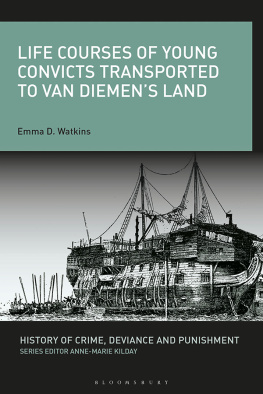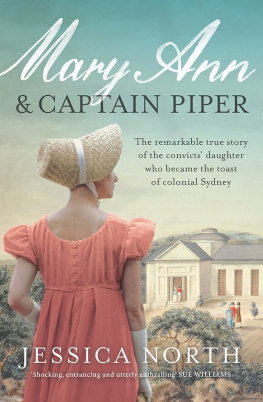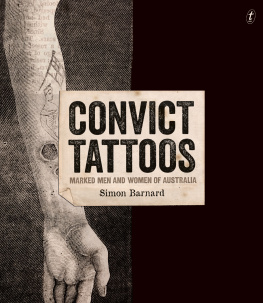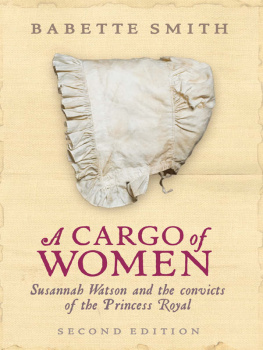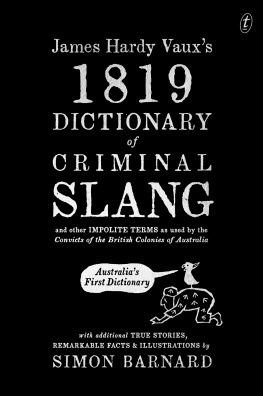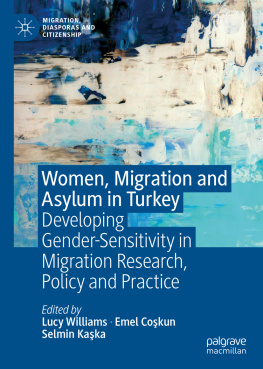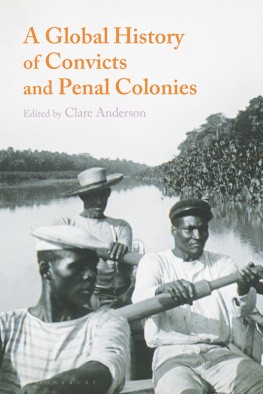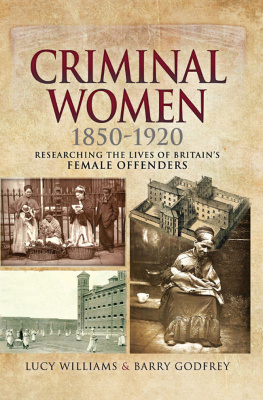Convicts in the Colonies
Convicts in the Colonies
Transportation Tales from Britain to Australia
Lucy Williams
First published in Great Britain in 2018 by
Pen & Sword History
An imprint of
Pen & Sword Books Ltd
Yorkshire - Philadelphia
Copyright Lucy Williams, 2018
Hardback ISBN 9781526718372
Paperback ISBN 9781526756312
eISBN 9781526718396
Mobi ISBN 9781526718389
The right of Lucy Williams to be identified as Author of this work has been asserted by her in accordance with the Copyright, Designs and Patents Act 1988.
A CIP catalogue record for this book is available from the British Library.
All rights reserved. No part of this book may be reproduced or transmitted in any form or by any means, electronic or mechanical including photocopying, recording or by any information storage and retrieval system, without permission from the Publisher in writing.
Pen & Sword Books Ltd incorporates the Imprints of Pen & Sword Books Archaeology, Atlas, Aviation, Battleground, Discovery, Family History, History, Maritime, Military, Naval, Politics, Railways, Select, Transport, True Crime, Fiction, Frontline Books, Leo Cooper, Praetorian Press, Seaforth Publishing, Wharncliffe and White Owl.
For a complete list of Pen & Sword titles please contact
PEN & SWORD BOOKS LIMITED
47 Church Street, Barnsley, South Yorkshire, S70 2AS, England
E-mail:
Website: www.pen-and-sword.co.uk
or
PEN AND SWORD BOOKS
1950 Lawrence Rd, Havertown, PA 19083, USA
E-mail: Uspen-and-sword@ casematepublishers.com
Website: www.penandswordbooks.com
Acknowledgements
W riting this book has been yet another exciting chapter in my own history. As with any undertaking, I have accumulated a significant debt of gratitude along the way.
This book would not have been possible without my involvement in the Digital Panopticon project. Since 2014 it has been my privilege to spend my days working with convict records and tracing the lives and journeys of Australias convicts. I have been phenomenally lucky to count as my colleagues some of the leading academics in the history of crime, punishment and convict transportation. The opportunity to discuss transportation with Barry Godfrey, Tim Hitchcock, Hamish Maxwell-Stewart, Deborah Oxley, Robert Shoemaker, Richard Ward and Emma Watkins, and to learn from their collective wealth of knowledge, has been invaluable. They each have my enduring thanks and admiration. Nell Darby too has provided much food for thought when it comes to discovering and writing convict histories. She has always been generous with encouraging words and helpful suggestions, for which I am very grateful. Any mistakes or omissions remain my own.
I would like to thank the National Library of Australia and the State Library New South Wales for providing some of the images in this book. Special thanks also to the Tasmanian Archives and Heritage Office, and the exceedingly helpful and patient staff at the State Records Office of Western Australia. Both online and in person these institutions go above and beyond to help researchers from around the world access our unique shared history. Special thanks to the Female Convict Research Centre in Tasmania, and the countless individual researchers across Australia with who I have discussed convict lives, particularly Dr Ruth Mann, who pointed me in the direction of the Ford sisters.
I am incredibly fortunate to have a tribe of supportive friends who are ever understanding of my need to cancel plans or disappear behind a stack of books for months at a time, and who are always still waiting when I finish a project. Sara Fisher and Kate Hales have both offered encouragement at regular intervals when I was most in need. I am lucky to have them. As usual, Mike McGibney deserves a special mention, for offering support, encouragement, and gentle mockery on an almost daily basis, even in a year full of his own adventures and challenges.
As always, my biggest thanks go to my husband Lorin, first mate on this voyage of endeavour, who kept me on course and provided safe harbour when the sea was roughest.
Introduction: The Lives of the Lagged
Ill put it at once into a mouthful of English. In jail and out of jail, in jail and out of jail, in jail and out of jail. There, you got it. Thats my life pretty much, down to such times as I got shipped off
Ive been done everything to, pretty well except hanged. Ive been locked up, as much as a silver tea-kettle. Ive been carted here and carted there, and put out of this town and put out of that town, and stuck in the stocks, and whipped and worried and drove.
Abel Magwitch tells his story in Charles Dickens Great Expectations (1862).
I n the last four years, I have spent almost every day banished beyond the seas, out of time and out of place, in convict Australia. At least a part of every day anyway. This book is a collection of tales I found there. I trawled through the lists, records, and hundreds of names of the men and women whose (mostly) ordinary lives were suddenly upended when they were loaded onto a boat and shipped across the world. In doing so, I could not help but be transported alongside them. As I waded through hundreds of documents I had a front row seat to watch as most of them disembarked at the other end, and as their fates unfolded in Britains farthest, and yet most familiar, penal colonies. I was with the First Fleet when they deposited a ragged horde of early settlers on the beaches at Botany Bay, and with the final ship as it pulled into Fremantle harbour to disembark its human cargo at the end of an astonishing era.
Such a journey could not help but inspire me to find out more about a fascinating eighty-year history. Between 1787 and 1868, approximately 168,000 convicts from Britain and Ireland were sent to Australia. There are many histories of convict Australia out there. Histories that trace the social, economic, and political background of the system, and similarly its impact on both sides of the world. There are books that offer a detailed insight into specific colonies, time periods, or particular groups. Whether your interest lies in juveniles, female convicts, or those sent to labour in chain gangs, youll find a rich and satisfying history available. The more I learn about convict transportation the more I realise what an impossible task it would be for a single book to do justice to almost a century of history, three huge colonies, and so many individual experiences. Luckily, this book has more modest intentions to tell a collection of tales of those transported to Australia. It was whilst immersing myself in the wider history of Australias penal colonies that I came across the very first one. A man called Isaac Comer.
Isaac was thirty-four when he was sentenced at the Somerset Sessions in Bath, in April 1844, to be transported for a term of fourteen years. Isaacs crime was not the most glamorous. He was guilty of receiving stolen goods. Nor was his criminal record the most inspiring. He had one previous conviction for the same kind of offence, had served five months for an assault, and three weeks for a bout of drunkenness which had seen him dishonourably discharged from the army. He was single, with no children that he knew of, and had been born in the town of his conviction.




